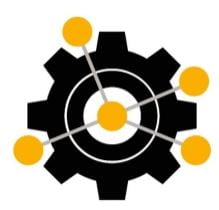Our decision to launch this Center came after years of discussion with colleagues about limitations of the performance-centric orientation and the relatively insular perspectives often used by scientists who study work and organizational behavior. Scientific and methodological advances across psychology and other disciplines underscore the importance of understanding work in terms of multilevel dynamic processes. These processes capture the complex, emergent relationships between an individual’s thoughts, feelings, and behaviors, work role, and the social workplace. At the same time, external forces affecting organizations and the work experience have revived important practical questions about how purpose and meaning, social relationships, longer working lives, and technologies affect work attitudes, engagement, performance, health, and psychological well-being.
A psychology of work has valuable implications for many stakeholders. Work is a fundamental aspect of human life. For most people, identities and aspirations related to work begin early in life and are continuously shaped by community, family, schooling, and economic realities. Getting a (decent) job, learning new skills, advancing one’s career, changing one’s work-role, job loss, and unemployment represent powerful work episodes with immediate and lagged consequences to psychological well-being, physical health, and public policy. What happens during work — our interactions with supervisors, colleagues, and clients — affect our emotions and contribute to the satisfaction of life goals and core human motives to be competent and to belong. A person-centric psychology of work encompasses a large scientific territory that connects to other areas of psychology and other fields. Further, an integrative psychology of work has many implications for real-world concerns, ranging from how organizations manage an older workforce, to the role of corporate social responsibility programs. In short, we think it is an excellent time to advance an integrative scientific psychology of work, based on a person-centric perspective.
Two Calls to Action:
1. To provide a shared foundation for this venture, we ask your help in identifying a set of Grand Challenges that work-science scholars need to address. Grand Challenges represent the critical scientific and people-context problems that, if addressed, can advance our understanding of working in the 21st century. Please click here to send your Grand Challenge suggestions, and we will collate these suggestions for discussion on the website.
2. Over the next year we expect to publish several papers on key topics in our Thinking Forward Series. If you would like to discuss contributing such a paper, please contact Ruth Kanfer at rk64@prism.gatech.edu.
We hope that the Work Science Center goals and mission resonates with you, and welcome your input as we move forward.
The Work Science Center Team

